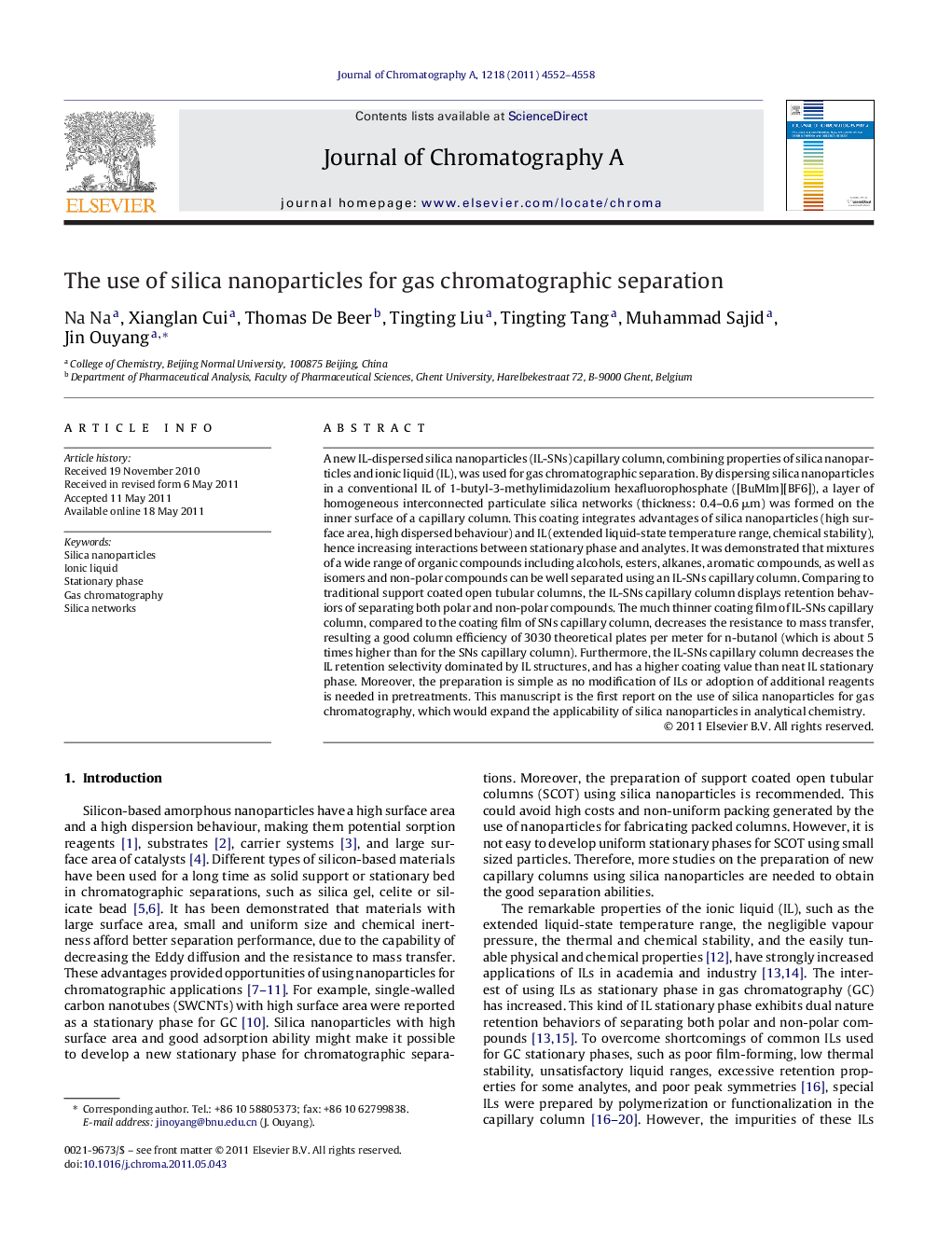| Article ID | Journal | Published Year | Pages | File Type |
|---|---|---|---|---|
| 1203659 | Journal of Chromatography A | 2011 | 7 Pages |
A new IL-dispersed silica nanoparticles (IL-SNs) capillary column, combining properties of silica nanoparticles and ionic liquid (IL), was used for gas chromatographic separation. By dispersing silica nanoparticles in a conventional IL of 1-butyl-3-methylimidazolium hexafluorophosphate ([BuMIm][BF6]), a layer of homogeneous interconnected particulate silica networks (thickness: 0.4–0.6 μm) was formed on the inner surface of a capillary column. This coating integrates advantages of silica nanoparticles (high surface area, high dispersed behaviour) and IL (extended liquid-state temperature range, chemical stability), hence increasing interactions between stationary phase and analytes. It was demonstrated that mixtures of a wide range of organic compounds including alcohols, esters, alkanes, aromatic compounds, as well as isomers and non-polar compounds can be well separated using an IL-SNs capillary column. Comparing to traditional support coated open tubular columns, the IL-SNs capillary column displays retention behaviors of separating both polar and non-polar compounds. The much thinner coating film of IL-SNs capillary column, compared to the coating film of SNs capillary column, decreases the resistance to mass transfer, resulting a good column efficiency of 3030 theoretical plates per meter for n-butanol (which is about 5 times higher than for the SNs capillary column). Furthermore, the IL-SNs capillary column decreases the IL retention selectivity dominated by IL structures, and has a higher coating value than neat IL stationary phase. Moreover, the preparation is simple as no modification of ILs or adoption of additional reagents is needed in pretreatments. This manuscript is the first report on the use of silica nanoparticles for gas chromatography, which would expand the applicability of silica nanoparticles in analytical chemistry.
